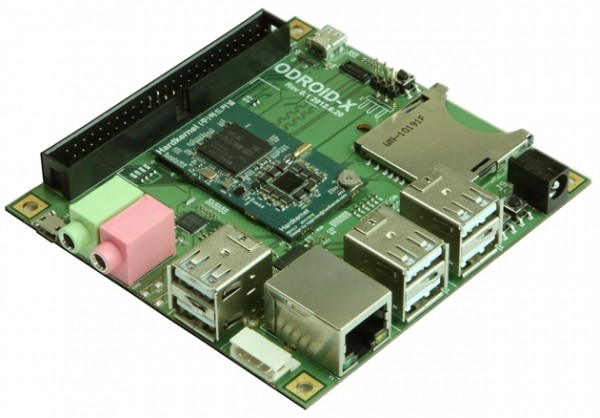Korean outfit Hardkernel has launched a new development platform that could be a solid alternative to the Raspberry Pi if you need a little more oomph. Priced at $129, the ODroid-X is equipped with a Exynos 4412 system-on-a-chip that houses a quad-core 1.4GHz Cortex A9 CPU and Mali 400 GPU -- the same solution inside Samsung's Galaxy S III smartphone. By comparison, the Raspberry Pi is powered by a Broadcom BCM2835 SoC with a single-core 700MHz ARM 11 CPU and a Broadcom VideoCore IV GPU.

The ODroid-X also packs 1GB of DDR2 RAM (quadruple the Pi's), a full size SDHC card slot, six USB 2.0 ports, 10/100Mb/s Ethernet, a Micro-HDMI output, audio jacks, a UART console port and a 50-pin I/O expansion port for LCD/I2C/UART/SPI/ADC/GPIO interfaces. Hardkernel also offers various optional accessories, such as a Wi-Fi antenna and a Bluetooth dongle. Given the amount of connectivity, the ODroid-X is about double the width of the Raspberry Pi, measuring 90 x 94mm versus 85.60 x 54.98mm.
The board is being sold as a mobile development platform, so Hardkernel ensures compatibility with Android Ice Cream Sandwich 4.0.4 and will even ship a preconfigured Class 6 or Class 10 SD card for $13. However, the ODroid-X is also shown running Ubuntu 12.04, and it can presumably handle other Linux distros that support ARM chips. The product page has five YouTube videos that show the system in action, including a four-player session of Mario Kart 64 and a demonstration of the device running four webcams.